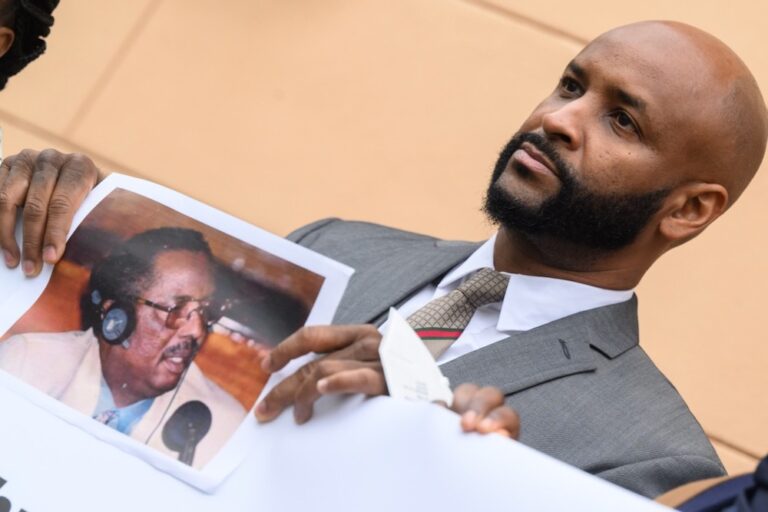On 30 June 2009, the ECOWAS Community Court in Abuja will give its ruling on a preliminary objection raised by the Gambian government in the case of Musa Saidykhan.
(MFWA/IFEX) – On 30 June 2009, the ECOWAS Community Court in Abuja, Nigeria, hearing the case of Musa Saidykhan, a Gambian journalist allegedly tortured while in custody of the National Intelligence Agency (NIA), will give its ruling on a preliminary objection raised by the Gambian government, the defendant in the case.
After boycotting the court on two occasions, the Gambian government issued a 20-page document, calling on the Community Court to dismiss Saidykhan’s case because it has no jurisdiction to hear the matter and because the plaintiff has not exhausted local judicial remedies.
“The plaintiffs’ (Saidykhan ) . . . suit is an affront on the Internal Sovereignty of the Defendant/Applicant and violates Article 39 of the Protocol . . . on democracy and good governance as well as Article 26, and 56(5) of the African Charter on Human and People’s Rights,” stated the government.
On the local remedies, the Gambia government stated that “the Defendant/Applicant is a sovereign nation operating a democratic Constitution based on the Rule of Law and provides for the protection of her citizens’ fundamental rights and freedom” and that “the defendant has national courts with jurisdiction over alleged human rights (abuses).”
But the West African sub-regional court is authorised, according to its protocol, to hear cases brought by citizens of member states without having to exhaust remedies in local national courts.
The government had previously shown gross disrespect to the Community Court in an earlier case by refusing to implement its order to release Chief Ebrima Manneh, Gambian journalist detained by the notorious National Intelligence Agency (NIA) in 2006. The Court served the government on several occasions in that case but it gleefully refused to make an appearance.
In November 2007, the Media Foundation for West Africa (MFWA) brought the suit on behalf of Saidykhan in order to seek justice for him and also bring relief to many other Gambian journalists who had suffered a similar fate and have escaped into exile for fear of repression.
Saidykhan, editor-in-chief of “The Independent”, a banned bi-weekly Banjul-based newspaper, escaped into exile after he was released from illegal detention. He is among scores of victims who were illegally detained and suffered all manner of cruelty including torture at the hands of President Yahya Jammeh’s security agents in the aftermath of an alleged coup attempt in March 2006.
On the night of 27 March 2006, a combined force of armed soldiers and policemen arrested Saidykhan in his home and took him to the notoriously feared National Intelligence Agency (NIA) headquarters. He was held incommunicado for 22 days without any charge. During this period he was tortured until he became unconscious. The continuous torture left scars on his back, legs, arms, and his right hand which was broken in three places.
“I was stripped naked while live-electric shocks were administered all over my body including my genitals. I was told by my torturers that electric shocks on my genitals were meant to make me impotent,” recalled Saidykhan in the writ.
This preceded the arrest of the entire staff of the newspaper including a receptionist. “The Independent”‘s office was raided and closed down for no apparent reason.


